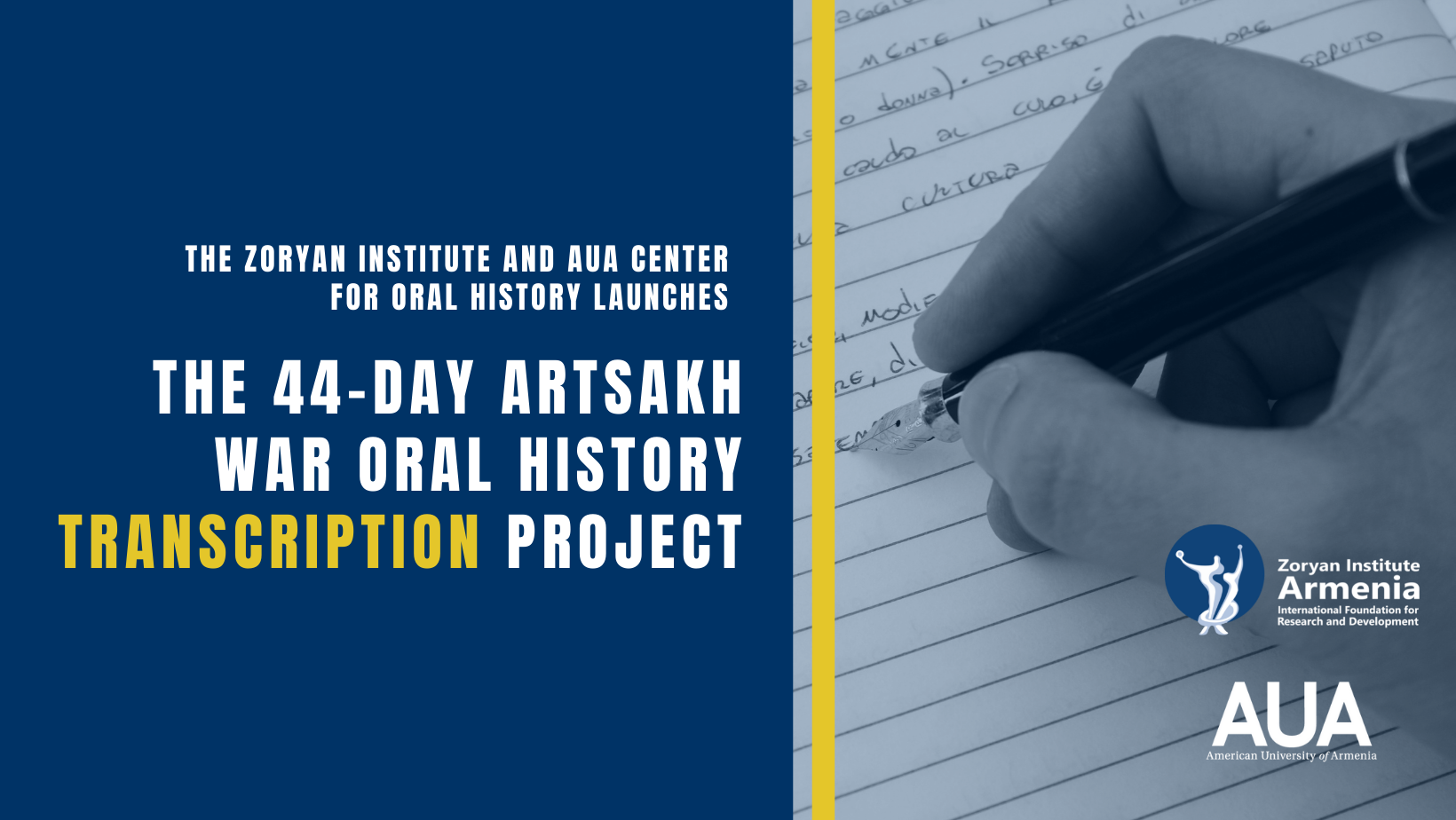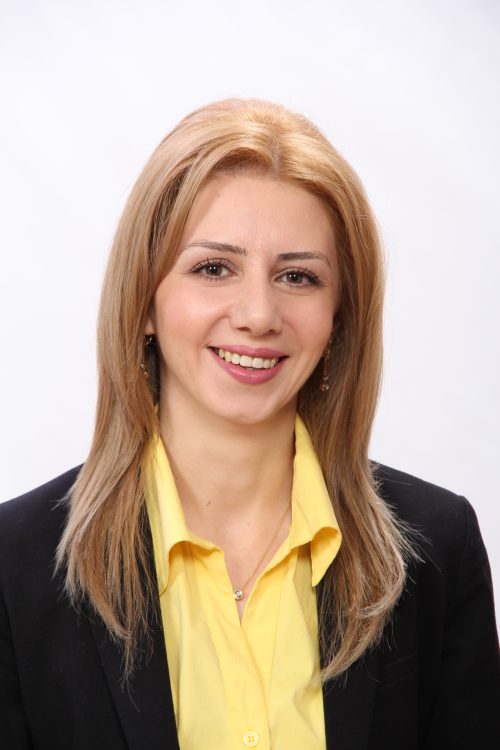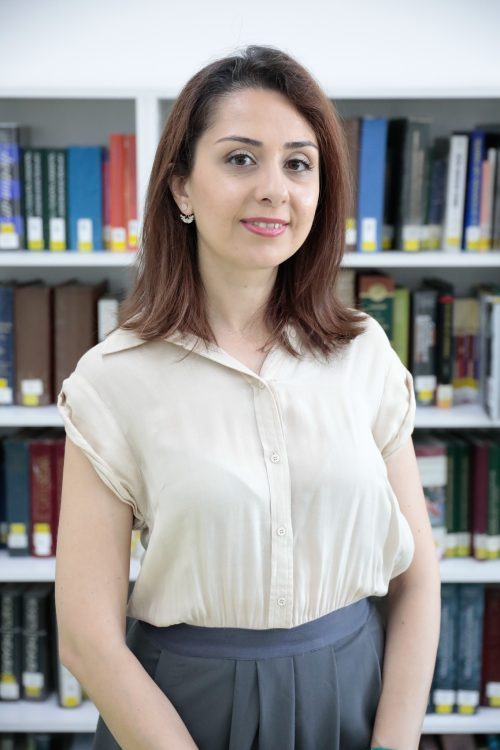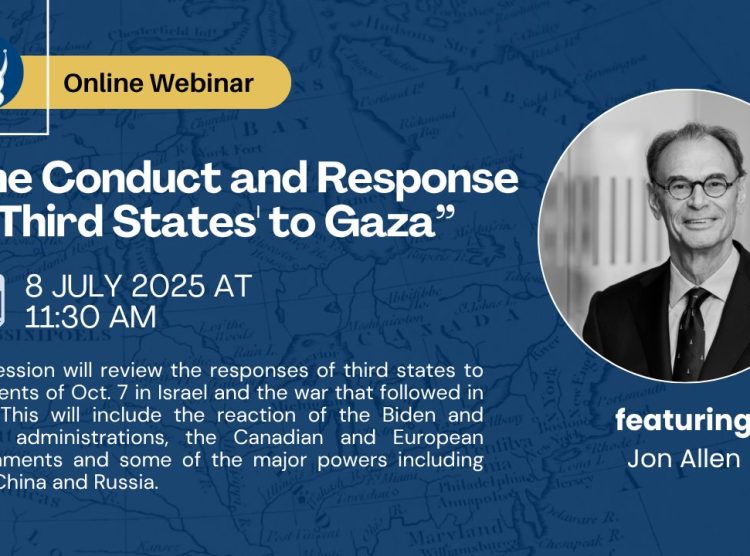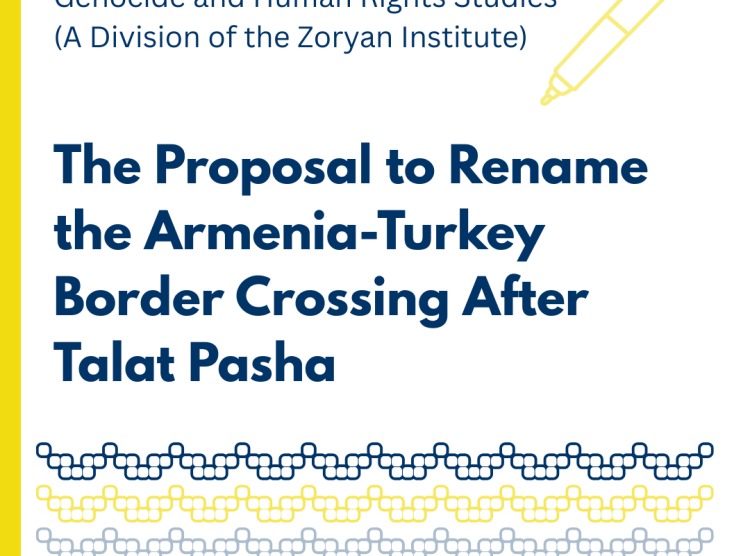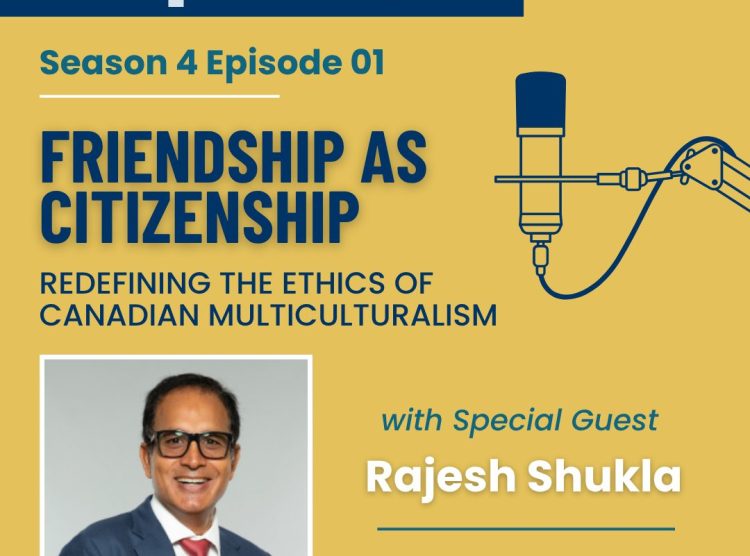The transcription will be done by Hasmik Atanesyan, a work-study student currently enrolled at AUA, who is pursuing a master’s degree in public health. Atanesyan has demonstrated a keen interest in oral history, stating, “I think that every personal story creates a unique piece of history, which shapes culture, ideology, and dreams.” In regards to working on the 44-Day Artsakh War Oral History Project, Atanesyan notes, “I hope that the Project will give power to the unheard voices, and help local and international audiences to see life from the lens of the person experiencing it, and better understand the condition of those who live in Artsakh.” In the process of transcribing the interviews, Atanesyan will utilize transcription software and follow the guidelines put in place by the Zoryan Institute, ensuring uniformity and organization throughout the transcription process.
Transcribing these interviews will be a significant undertaking — each hour of audio takes approximately four hours to transcribe. If the project meets its goal of interviewing 100 people impacted by the 44-Day Artsakh War, it is likely that transcription will take between 800 and 1600 hours. Nevertheless, transcription of these interviews is a critical step in allowing these invaluable testimonies to be more widely available and accessible. By documenting and transcribing these interviews now, we will humanize the stories we have been hearing in the news over the past year, and have a better understanding of the catastrophic events that have occurred and the experiences of survivors. Transcription of these interviews will be vital in connecting the diaspora with the stories of survivors, preserving the stories for future generations and research efforts, and may inform more effective humanitarian and rebuilding efforts in the region.
Founded in 1991, the American University of Armenia (AUA) is a private, independent university located in Yerevan, Armenia, affiliated with the University of California, and accredited by the WASC Senior College and University Commission in the United States. AUA provides local and international students with Western-style education through top-quality undergraduate, graduate, and certificate programs, promotes research and innovation, encourages civic engagement and community service, and fosters democratic values.
Zoryan Institute Armenia International Foundation for Research and Development (ZIA), is a place to think, research and analyze recent history and events that impact contemporary Armenian life. ZIA recognizes that intellectual force in a community is crucial. Through scholarship, education, research and publications, ZIA creates a common body of knowledge on Armenian life today.
Interviews for the 44-Day Artsakh War Oral History Project are ongoing. In order to achieve the Zoryan Institute Armenia’s goal of interviewing at least 100 people affected by the war, we need the support of our donors and the Armenian community worldwide. Each interview costs approximately $350 USD to record. This includes the use of the audio-visual equipment, lighting, support staff, travel and the collection, storage, and maintenance of records. Collecting these testimonies in a timely manner will allow for the transcription work done at the Zoryan Institute-AUA Center for Oral History to be completed sooner, allowing these interviews to be made available to a wider international audience at a critical time in Armenia’s history.
Please assist the Institute by donating today: www.zoryaninstitute.org/donate.
Sponsors will receive a tax deductible receipt (if in Canada or the United States) and recognition of their donation on the Zoryan Institute website and social media channels. Thank you for your support.

